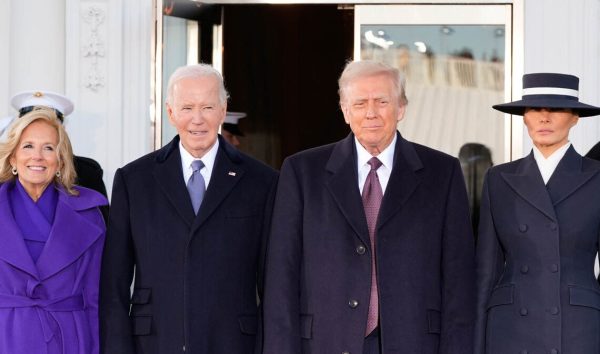Republicans win Presidency, House majority, Senate majority
via Google under Creative Commons license
Donald Trump won the 2016 election in the United States, ending his second run for the presidency.
In the early hours of a November morning, Donald Trump took the stage in front of a wall of flags at his campaign headquarters in New York City.
“Now it is time for America to bind the wounds of division,” announced Trump. This was his first public appearance as president elect of the United States following the counting of votes from all 50 states after the election on Nov. 9.
Trump’s party, the Republicans, won both the majority in the House of Representatives and the Senate. In the House, the Republican Party holds 239 seats while the Democratic Party holds just 192. Republicans won 51 Senate seats, while Democrats won 47. Several seats in both houses of Congress are to be awarded to third-party candidates.
Throughout the night of Nov. 9, as a Trump victory seemed more and more likely, Dow futures plummeted more than 800 points. Both the S&P and Nasdaq fell so quickly over night that they hit their maximum limits, causing a brief halt on trading until morning. Such a large economic downturn had not been seen since the British vote to leave the European Union, also known as Brexit, according to mic.com.
This was no surprise to economists, as 370 of them, including eight Nobel Laureates, signed an open letter to the Wall Street Journal warning that Trump’s economic plan would have disastrous consequences. This letter was published Nov. 1; the fear stemming from it and similar predictions left no wonder as to why such a reaction occurred post-election.
Trump won the Presidency with a 290-232 electoral vote. This election will be the fifth time in the history of the United States in which the candidate who won the popular vote will not be the candidate to take office the following January. Hillary Clinton, Trump’s opponent, received 61,329,657 votes while Trump received 60,530,867. In Clinton’s concession speech, she referred to her loss as painful, but urged unity between Democrats and Republicans alike.
Although the electoral college will not cast their ballots until December, it is historically common for them to elect the same candidate as was mathematically chosen by the electoral system. If just 21 electors who were expected to vote for Trump choose to vote for a third-party candidate, neither Trump nor Clinton will receive the electoral majority of 270 needed to take office, and the election will be left in the hands of the House of Representatives. In this case, the Vice President will be chosen by the Senate. A presidential election among Congress members has only occurred twice in the history in the United states- once in 1800, which resulted in the Presidency of Thomas Jefferson, and then in 1824, which resulted in the Presidency of John Quincy Adams.












